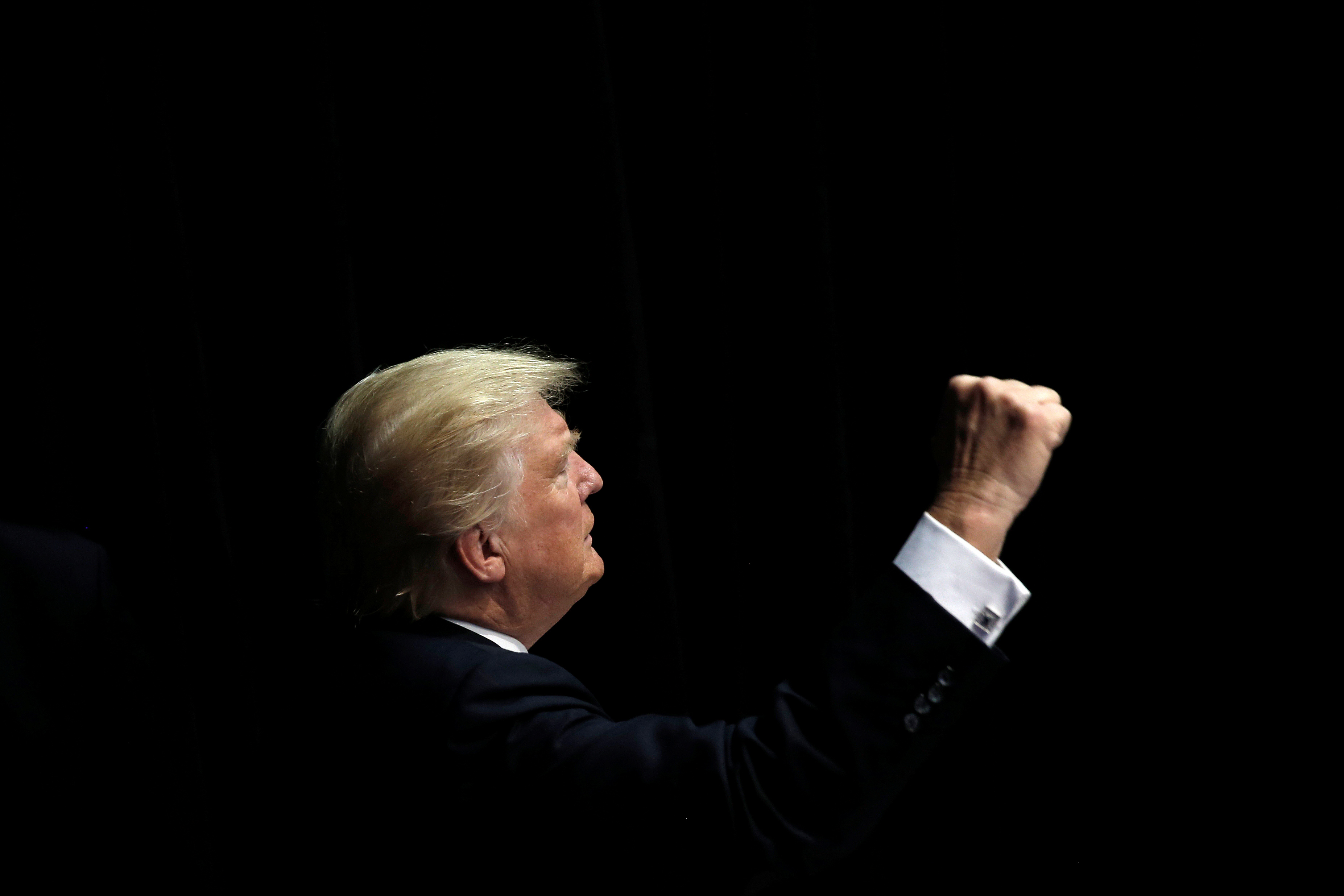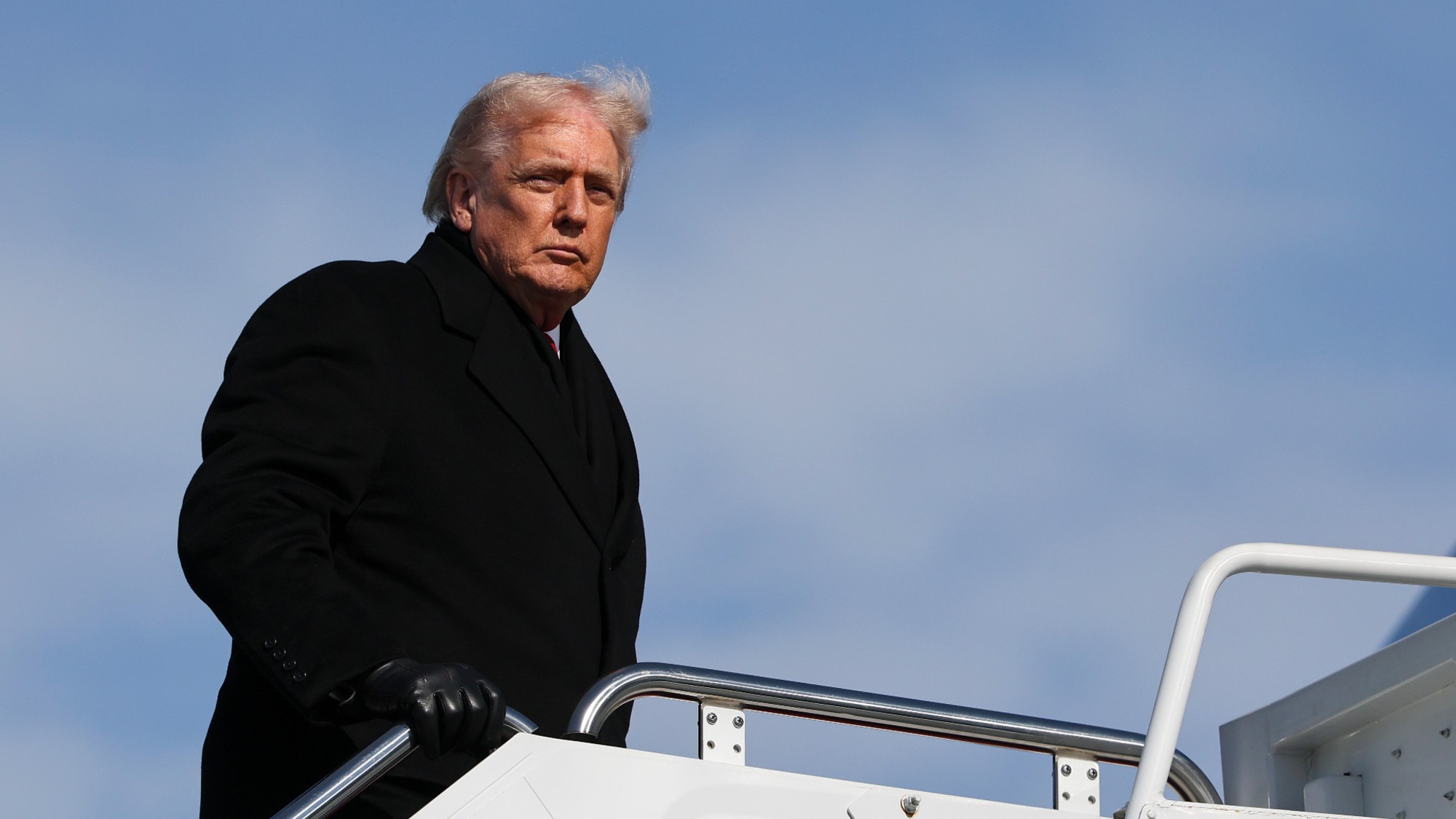How Donald Trump won Obama voters — and what he'll do now
Donald Trump shocked the world. Now he inherits a world of trouble.


For most of this campaign, the assumption was that Hillary Clinton was a sure winner. Donald Trump was not running a normal campaign. He had no ground game. His campaign was marked by constant turmoil. He was exposed describing himself in terms used by sexual predators. And, of course, there were the polls that kept settling into Clinton having a three- or four-point lead. We were also told that Trump was the candidate of white racial backlash, and that the only explanation of his candidacy's power was the malignant racial resentment of Republican voters.
Well, Donald Trump has proven all of us wrong. The contest turned for him in the Rust Belt and the Midwest, where he won many counties that Barack Obama won in 2012. The great problem for Republicans heading into 2016 was to find Obama states they could win. And the voters who really seemed to matter in 2016 were the white Midwesterners who voted for Obama, and who may approve of him now, but who broke for Trump. It leads one to suspect that voters have been persistently signaling their desire for populist economic change. Obama wore that mantle in 2008 and 2012. Trump wore it in 2016. Millions of American men have dropped out of the workforce in recent decades. All Clinton offered were more tweaks to health insurance and a maternity leave program. You may not believe Trump's policies will serve this class well — I don't — but they were articulated as if the problems were grave. Voters responded to him. Hillary Clinton lost Obama voters.
The political and media belt in Washington and New York was not prepared for this result. This was partly a problem of credulity; the media never really believed that Trump could be president. But there are deeper problems. The electoral result is straining against the margin of error in the polling. Were poll respondents lying? Were people afraid to tell pollsters they were voting for Trump? Is our culture making people fearful to say they support Trump? Those questions will linger for months.
The Week
Escape your echo chamber. Get the facts behind the news, plus analysis from multiple perspectives.

Sign up for The Week's Free Newsletters
From our morning news briefing to a weekly Good News Newsletter, get the best of The Week delivered directly to your inbox.
From our morning news briefing to a weekly Good News Newsletter, get the best of The Week delivered directly to your inbox.
But the pressing concern is that Trump is going to be president, and he is assuming the office at a difficult time.
He inherits a divided country. And he will be at loggerheads with the political class of his country when he takes office. The same political split that divided America in this election seems to be dividing every developed nation. And no political actor has found a model for mastering this divide. In so many Western nations, we see the rise of a populist party in rural areas and declining small cities. It aligns on the side of nationalist economics, nativist immigration policy, and the resentment of the elites. On the other side are the major global cities, populated by a cosmopolitan mandarin class who enjoy the material and cultural benefits of globalization. No one has mastered the political divide this creates. Even Angela Merkel, who benefits from the power to make broke Irish taxpayers, unemployed Spanish youth, and Greek peasants pay German creditors, could not master this difficulty. How will Donald Trump master it when he is the first true right-wing populist figure to seize control of a major government? The only other populist party to capture their nation and confront the neoliberal consensus directly was Syriza in Greece. They got hammered.
On the foreign policy front, Trump's presidency will face a half dozen serious risks. George W. Bush claimed a kind of exit with honor from Iraq. Barack Obama told his legacy-sniffers in the media that he had stepped back from the abyss of the Middle East. Neither was truthful with themselves or the public. And so Donald Trump is going to inherit U.S. involvement in six wars in the Islamic world: an air campaign in Iraq against ISIS; a years-long covert and overt attempt to help "moderate rebels" overthrow Bashar al-Assad in Syria; a never-ending mop-up operation against terrorist groups in Libya; a hopeless (and disgraceful) attempt to assist Saudi Arabia install a puppet regime in Yemen; an endless series of Special Forces raids in Somalia's civil war; and the drawdown of troops in Afghanistan, even though that government is ceding territory to the Taliban. Even the most brilliant foreign policy strategists would find these conflicts difficult to juggle.
Trump will have to manage all these while enduring stressful relationships with Turkey and Iran. If he wants to pursue a detente with Russia, it would mean cutting off our own proxies at the knees. If a group of American soldiers are killed in one of these hot spots that the public barely knows about, Trump's presidency will face the same awful decision that haunted Ronald Reagan and Bill Clinton: to withdraw in disgrace from a conflict that Americans don't understand. It would immediately put his supposed devotion to an "America First" foreign policy into conflict with his touchy ego and desire to be a winner. If I were betting, I'd say that the voices of realism, restraint, and retrenchment that have attached themselves to Trump will be pushed aside in favor of advisers like John Bolton and General Michael Flynn, bold Jacksonian hawks.
A free daily email with the biggest news stories of the day – and the best features from TheWeek.com
But for now we also have to contend with a new reality. The era of politics that existed after the Cold War is now in doubt. This was an era of good-hearted policy experts and wonks who would twist the knobs of government regulations and subsidies by a few microns, trying to nudge us to marginally higher heights of gross national satisfaction, defined in the most coldly utilitarian terms. What we see now is a reassertion of nationalism in the United States, as elsewhere. An insistence that elites must stop their moral, cultural, and financial secession from their host nations. Donald Trump is at the head of this movement, and there are real questions about whether he truly understands it. And there are real questions about whether the Republican Party that got re-elected to Congress are willing to adapt to it. There is no roadmap for Trump. And there are many dangers ahead.
Michael Brendan Dougherty is senior correspondent at TheWeek.com. He is the founder and editor of The Slurve, a newsletter about baseball. His work has appeared in The New York Times Magazine, ESPN Magazine, Slate and The American Conservative.
-
 ‘Ghost students’ are stealing millions in student aid
‘Ghost students’ are stealing millions in student aidIn the Spotlight AI has enabled the scam to spread into community colleges around the country
-
 A running list of everything Donald Trump’s administration, including the president, has said about his health
A running list of everything Donald Trump’s administration, including the president, has said about his healthIn Depth Some in the White House have claimed Trump has near-superhuman abilities
-
 NASA’s lunar rocket is surrounded by safety concerns
NASA’s lunar rocket is surrounded by safety concernsThe Explainer NASA hopes to launch a new mission to the moon in the coming months
-
 The billionaires’ wealth tax: a catastrophe for California?
The billionaires’ wealth tax: a catastrophe for California?Talking Point Peter Thiel and Larry Page preparing to change state residency
-
 Bari Weiss’ ‘60 Minutes’ scandal is about more than one report
Bari Weiss’ ‘60 Minutes’ scandal is about more than one reportIN THE SPOTLIGHT By blocking an approved segment on a controversial prison holding US deportees in El Salvador, the editor-in-chief of CBS News has become the main story
-
 Has Zohran Mamdani shown the Democrats how to win again?
Has Zohran Mamdani shown the Democrats how to win again?Today’s Big Question New York City mayoral election touted as victory for left-wing populists but moderate centrist wins elsewhere present more complex path for Democratic Party
-
 Millions turn out for anti-Trump ‘No Kings’ rallies
Millions turn out for anti-Trump ‘No Kings’ ralliesSpeed Read An estimated 7 million people participated, 2 million more than at the first ‘No Kings’ protest in June
-
 Ghislaine Maxwell: angling for a Trump pardon
Ghislaine Maxwell: angling for a Trump pardonTalking Point Convicted sex trafficker's testimony could shed new light on president's links to Jeffrey Epstein
-
 The last words and final moments of 40 presidents
The last words and final moments of 40 presidentsThe Explainer Some are eloquent quotes worthy of the holders of the highest office in the nation, and others... aren't
-
 The JFK files: the truth at last?
The JFK files: the truth at last?In The Spotlight More than 64,000 previously classified documents relating the 1963 assassination of John F. Kennedy have been released by the Trump administration
-
 'Seriously, not literally': how should the world take Donald Trump?
'Seriously, not literally': how should the world take Donald Trump?Today's big question White House rhetoric and reality look likely to become increasingly blurred
